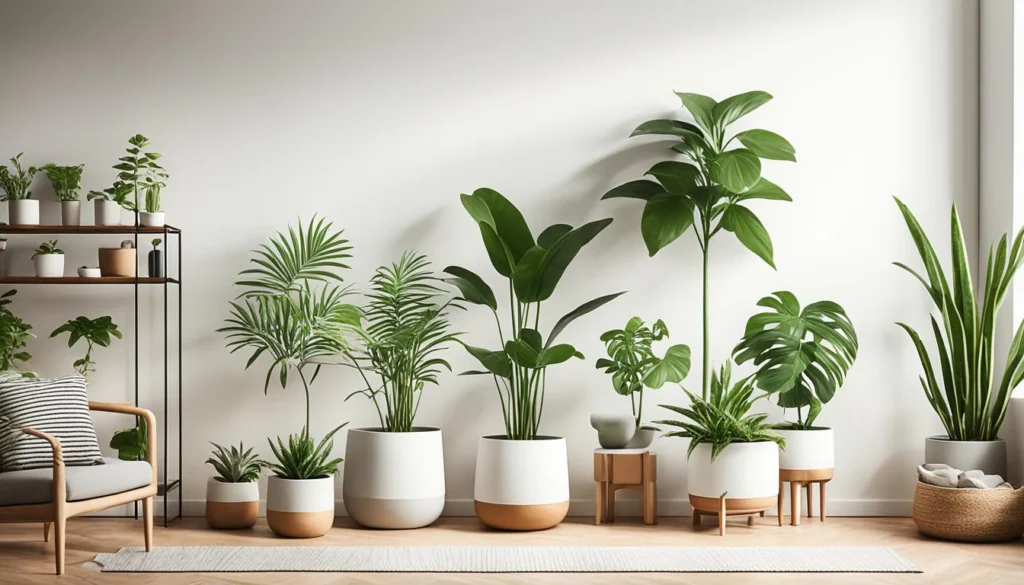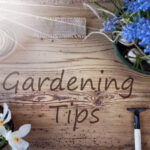Today post is related the Tips for Safeguarding Your Plants and Growing Success. A beautiful garden is not just a space filled with flowers, vegetables, and greenery; it’s a testament to time, care, and effort. However, gardens are also vulnerable to a variety of threats, ranging from pests and diseases to extreme weather conditions and human interference. Protecting your garden requires a combination of prevention, proactive care, and a bit of ingenuity. In this article, we will explore several effective strategies to protect your garden, ensuring it thrives season after season.
Table of Contents
Toggle1. Pest Control: Safeguarding Your Plants and Growing Success from Visitors
Pests are one of the most common threats to gardens, and they can wreak havoc on plants by eating leaves, roots, and flowers, or by transmitting diseases. Common garden pests include aphids, snails, slugs, caterpillars, and beetles. Here are some steps to minimize the impact of pests:
a. Organic Pest Control
- Beneficial Insects: Consider introducing beneficial insects like ladybugs, lacewings, or predatory beetles to your garden. These insects feed on pests like aphids and caterpillars, naturally controlling their populations.
- Neem Oil or Insecticidal Soap: These organic products are effective at controlling a variety of pests without harming your plants or the environment. Neem oil disrupts the life cycle of pests, while insecticidal soaps suffocate soft-bodied insects like aphids and mites.
- Diatomaceous Earth: A fine, powdery substance made from fossilized remains of marine organisms, diatomaceous earth is an excellent deterrent for pests like slugs, snails, and beetles. When sprinkled around the base of plants, it damages the exoskeletons of insects and dries them out.
- Companion Planting: Some plants naturally repel pests. For example, planting marigolds, garlic, or basil alongside vegetables like tomatoes and peppers can help ward off common pests. Additionally, strong-scented herbs like mint or rosemary can act as natural repellents for many insects.
b. Physical Barriers
Sometimes, physical barriers are the most effective way to keep pests at bay. Netting, row covers, or garden fleece can be draped over plants to protect them from insects, birds, and small animals. Similarly, copper strips or mesh can deter slugs and snails from reaching plants. For larger pests like deer or rabbits, building a fence around the garden will provide protection.
2. Disease Prevention: Keeping Your Garden Healthy
Just like pests, plant diseases can quickly spread and destroy crops or ornamentals. These diseases may be caused by fungi, bacteria, or viruses, and can infect plants through soil, water, or airborne spores. Here are a few tips to protect your garden from plant diseases:
a. Crop Rotation
Planting the same crops in the same soil year after year can encourage the buildup of specific pathogens in the soil. To prevent this, practice crop rotation—change the types of plants you grow in each bed every season. For instance, after growing tomatoes, move legumes or root vegetables into that bed the following year to prevent soil-borne diseases like blight or rust from taking hold.
Read More Ultimate Guide to 20×12 Garden Sheds
b. Proper Watering Techniques
Overhead watering can increase the spread of fungal diseases, as water droplets may splash infected soil onto leaves. To avoid this, use drip irrigation or soaker hoses to water plants at their roots. This technique keeps the foliage dry and reduces the chance of fungal infections.
c. Remove Infected Plants
If you spot signs of disease, such as yellowing leaves, mold, or unusual spots, remove the affected plants immediately. Be sure to discard them away from your garden to prevent the disease from spreading. If you must compost the infected plants, make sure to compost them at high temperatures to kill pathogens.
d. Clean Tools and Equipment
Diseases can be spread through contaminated tools, so it’s essential to regularly disinfect your gardening tools, such as pruners, shovels, and trowels. Use a mixture of rubbing alcohol or bleach and water to sanitize the equipment between uses, particularly after working with infected plants.
3. Protecting Your Garden from Extreme Weather
Extreme weather events—such as heavy rain, frost, hail, high winds, or intense heat—can all pose a serious threat to your garden. The key to protecting your plants from the unpredictable weather lies in preparation and adaptability.
a. Frost Protection
Frost can be especially damaging in spring or late fall, when tender plants are still vulnerable. To protect against frost damage, cover plants with row covers, cloches, or old bedsheets during cold nights. For plants in pots, move them indoors or place them in a sheltered area, such as a garage or porch. If you’re growing frost-sensitive vegetables like tomatoes, peppers, or cucumbers, be mindful of the last frost date for your region.
b. Sun and Heat Protection
Prolonged periods of intense heat can stress plants, particularly those that are not native to hot climates. To protect them, provide some shade using shade cloth, garden umbrellas, or trellises with climbing vines that provide natural coverage. Additionally, mulch around the base of plants helps retain moisture and regulate soil temperature.
c. Wind Protection
Strong winds can damage delicate plants, especially taller varieties like sunflowers or corn. Protect them by installing windbreaks such as fences, hedges, or tall shrubs. These act as barriers, reducing wind velocity and minimizing plant damage.
d. Rain and Flooding Prevention
Heavy rains and flooding can result in soil erosion, waterlogged plants, or the spread of diseases. To prevent this, ensure your garden has proper drainage—this can be achieved by improving soil structure with organic matter or installing raised garden beds. If your area is prone to flooding, consider planting more drought-tolerant or water-loving varieties.
4. Animal Protection: Safeguarding Your Garden from Wildlife
Many animals, including rabbits, squirrels, deer, and even birds, can cause significant damage to gardens by eating plants, fruits, and vegetables. Here are some strategies to keep wildlife away:
a. Fencing and Barriers
Building a sturdy fence around your garden can prevent larger animals like deer, rabbits, or raccoons from entering. A fence should be at least 4-5 feet tall to deter deer, and smaller fencing can be used to keep rabbits out. For smaller pests, consider using mesh or chicken wire.
b. Animal Repellents
Natural repellents can help deter animals from feasting on your plants. For example, spraying garlic, cayenne pepper, or predator urine around your garden can repel rabbits, deer, and squirrels. Be sure to reapply repellents after heavy rain or watering.
c. Motion-Activated Devices
Motion-activated sprinklers or ultrasonic repellents can be effective in scaring off animals. These devices detect movement and release a burst of water or sound, startling animals and encouraging them to stay away from your garden.
5. General Maintenance: Keep Your Garden in Optimal Health
Beyond pests, diseases, and weather, general garden maintenance plays a vital role in protecting your plants and ensuring healthy growth. Here are a few important practices:
- Weed Regularly: Weeds compete with your plants for nutrients, water, and sunlight, and can also harbor pests and diseases. Regular weeding is essential to maintaining a healthy garden.
- Prune Dead or Damaged Growth: Pruning not only encourages healthy new growth but also removes dead or diseased plant parts that could spread infections.
- Mulch and Fertilize: Applying mulch helps retain soil moisture, prevent weed growth, and regulate temperature. Fertilizing ensures that your plants get the nutrients they need to stay strong and healthy.





